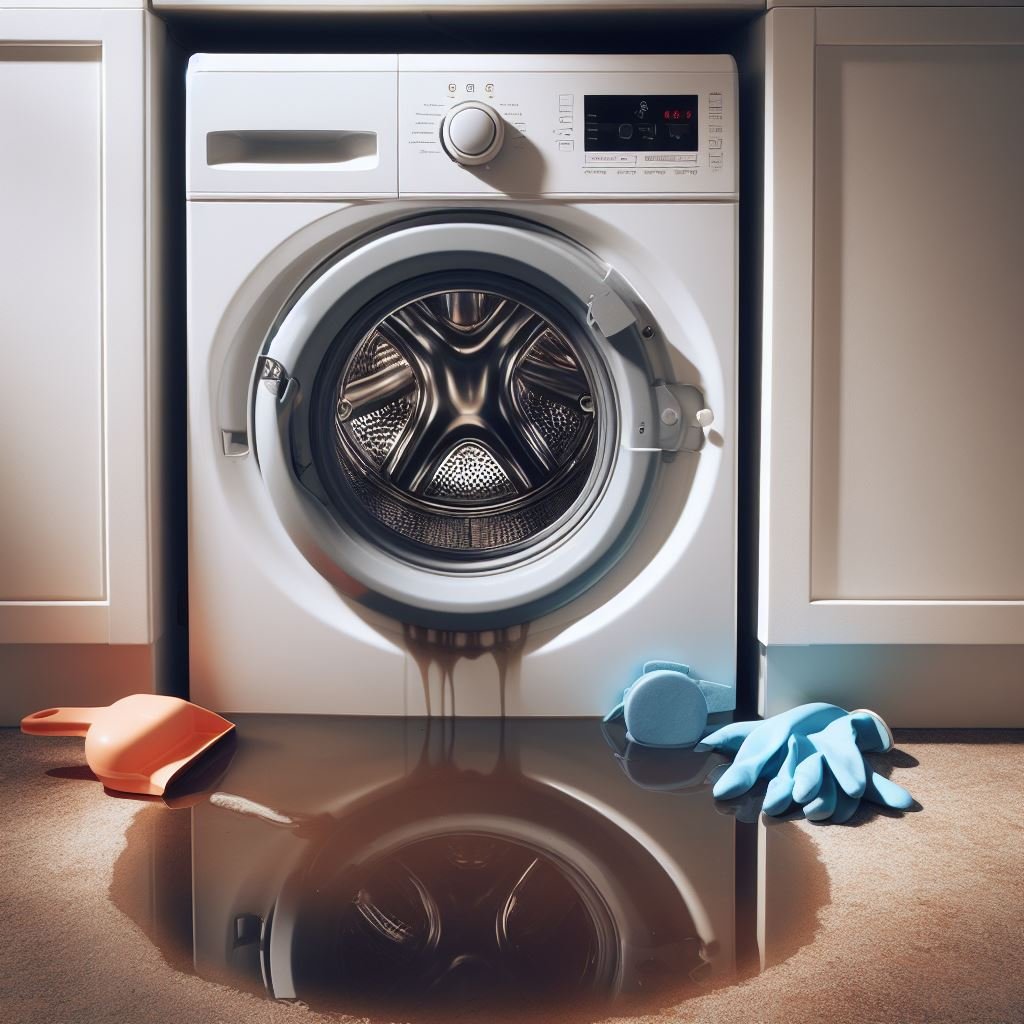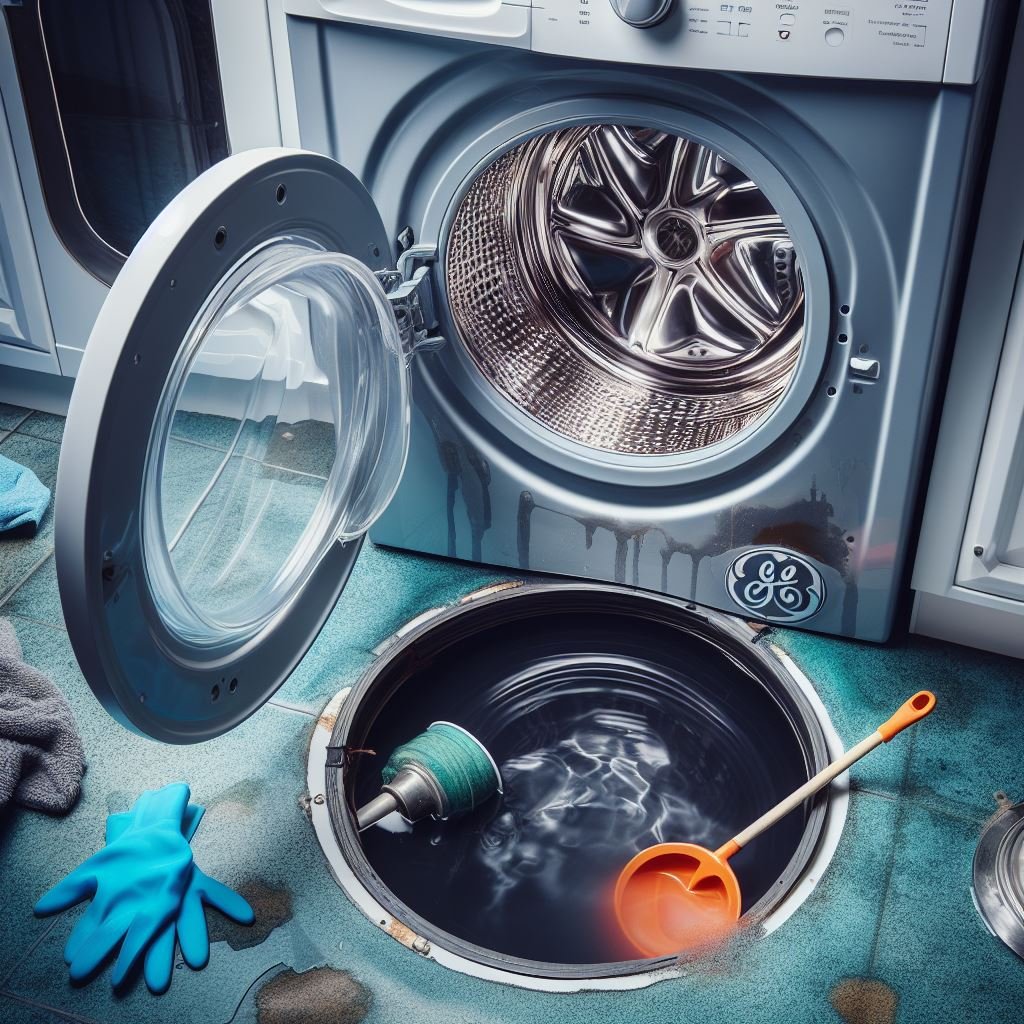Having a washing machine that won’t drain can be both frustrating and time-consuming. If you have a GE washer that’s giving you a headache because it won’t drain, you’re not alone. This issue can happen due to various reasons, and pinpointing the cause can be a bit of a puzzle. Let’s take an in-depth look at why your GE washer might not be draining, and what you can do about it.
Common Causes of Drainage Issues
Before you call a technician, it’s essential to know the common reasons why a GE washer may not be draining properly. These include:
- Clogged Drain Hose: Debris or lint can clog the drain hose.
- Faulty Lid Switch: If this switch is broken, the machine won’t drain.
- Blocked Pump: Sometimes, small objects like coins can block the pump.
Knowing these can save you time and possibly some money on repairs.
How to Inspect the Drain Hose
Your washer’s drain hose could be the main culprit behind the drainage problem. Often, a simple visual inspection can reveal a clog or obstruction. Here’s how you can do it:
- Unplug the Washer: Always ensure the machine is unplugged before performing any checks.
- Locate the Hose: Find the hose at the back of your machine.
- Check for Obstructions: Use a flashlight to look inside.
A long brush can help you remove any lint or debris that may be causing the blockage. If you’re not comfortable doing this yourself, it might be best to call in a professional.
Testing the Lid Switch
The lid switch is another often-overlooked reason why your GE washer might not be draining. When this part is faulty, the washer won’t proceed to the draining cycle. To check this:
- Locate the Switch: It’s usually near the door frame.
- Engage the Switch: Use a small object to press down.
- Listen for a Click: A working switch will make a clicking sound.
If you don’t hear the click, the lid switch could be faulty and may need replacement.
Other Possible Issues
While the drain hose and lid switch are common culprits, other issues might be causing your GE washer not to drain.
- Drive Belt: This belt can wear out and might need replacing.
- Drain Pump: Mechanical issues can cause the pump to malfunction.
- Control Board: A less common reason could be the machine’s electronic control board.
| Possible Issue | Common Solution |
|---|---|
| Drive Belt | Replacement |
| Drain Pump | Check and possibly replace |
| Control Board | Professional diagnosis |
Electronic Control Board
Though it’s not common, a faulty electronic control board can be the reason behind drainage issues. However, diagnosing this problem usually requires technical expertise. If you’ve ruled out all the other causes, it might be time to consult the manufacturer or get a technician to perform a detailed check.
DIY or Professional Help?
Should you fix the drainage issue yourself, or is it better to call in the experts? This question often boils down to your comfort level with DIY tasks and understanding the washing machine’s mechanics.
- Skill Level: If you are handy, you might solve simple issues like a clogged hose yourself.
- Warranty: Check if your GE washer is still under warranty. DIY attempts might void it.
If you’re unsure, it’s always safer to seek professional assistance. There’s no point in causing more damage in an attempt to save money.
General Tips for Maintenance

Here are some general tips to help you prevent drainage issues in the future:
- Regularly check the drain hose for clogs
- Avoid overloading the washer
- Clean the lint filter periodically
By adhering to these basic guidelines, you can minimize the chances of encountering drainage issues with your GE washer.
In summary, if you find your GE washer not draining, there could be several reasons behind it. Whether it’s a clogged drain hose, a faulty lid switch, or something more complex like a malfunctioning electronic control board, the first step in solving the problem is understanding it. We hope this article sheds light on the possible issues and how you can go about fixing them. For more complex problems, it may be best to consult a professional for a proper diagnosis.
